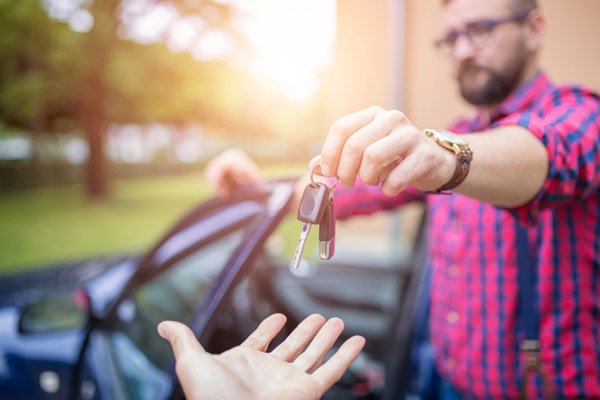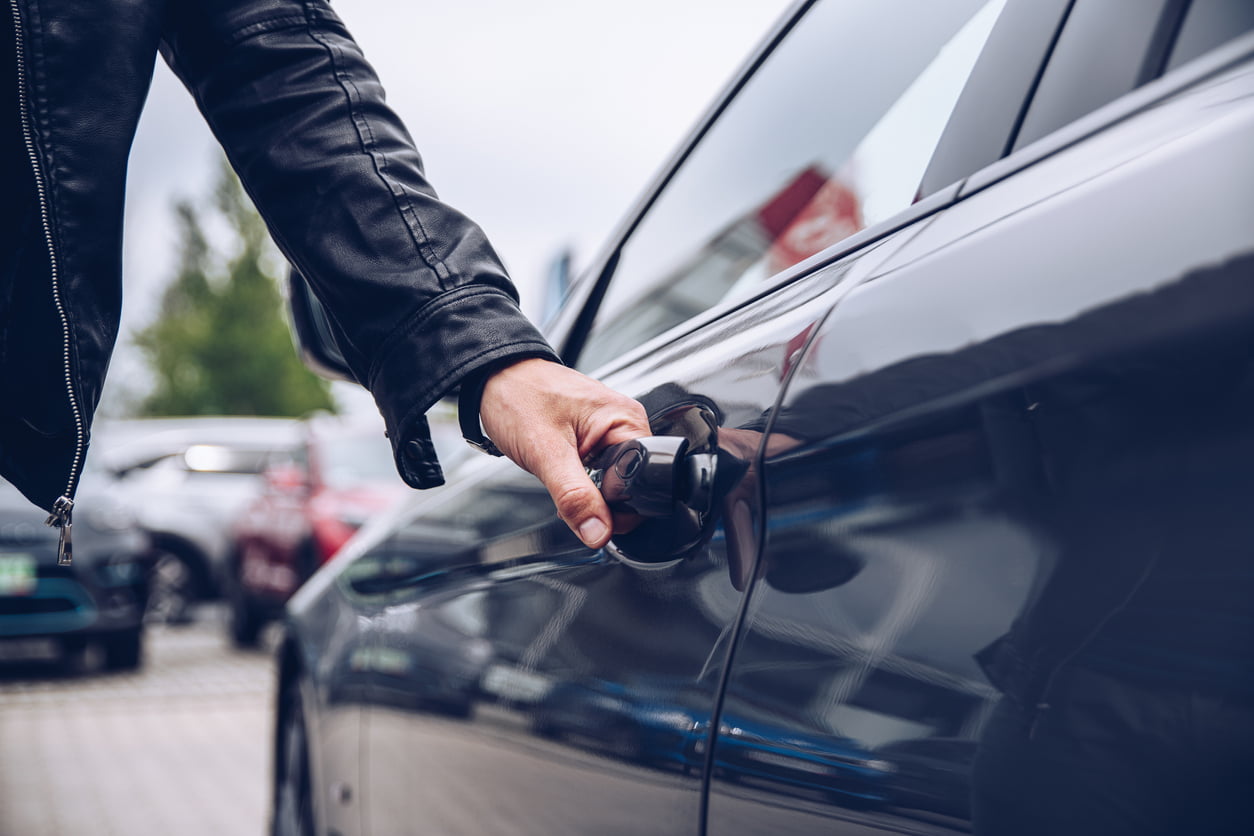DISCLAIMER: Please note that non-owner car insurance is not offered as a standalone policy, but as an additional coverage on your auto policy.
Many people that live in large cities manage their daily lives without the need of owning a car. Still, occasions will pop up where an errand needs to be run or planning a day trip for your ‘staycation’ requires a vehicle. What then? If you have ever borrowed a friend’s car or rented a vehicle for a trip, have you ever wondered how you would be protected if you got into an accident? Will you be protected or will just the owner of the car be covered? With non-owner car insurance in Ontario, you will be protected. Let’s delve a little deeper into non-owner car insurance to help you decide if it is coverage that suits your needs.
What is non-owner car insurance?
Simply put, non-owner car insurance is a type of coverage that protects you if you don’t own a car. If you borrow, rent or participate in car sharing (such as Zipcar) on a regular basis, non-owner insurance may be right for you. Like all drivers in Canada, it is illegal to be behind the wheel of a vehicle without a valid auto insurance policy.
If you are regularly borrowing your friend’s car to run errands or rent cars for your yearly ‘staycation’, it is important that you are carrying an insurance policy with liability coverage. To protect yourself in case of an at-fault accident, having non-owner car insurance in Ontario can prevent you from paying out of pocket for possible injuries or property damage.
Who can get non-owner auto insurance?
Any driver with a valid driver’s licence and existing auto policy is eligible for non-owner car insurance as an endorsement for a vehicle they do not own. However, many insurance companies won’t offer non-owner insurance to drivers who have access to a vehicle in their household. So, if a family member or someone in your household is lending you a vehicle, non-owner car insurance isn’t the appropriate choice. In this case, you are to be included on your family member’s insurance policy, even if it’s as an occasional driver.
Why would I buy non-owner insurance coverage?
There are many reasons why you may opt for non-owner car insurance. Here are a few examples:
1. You borrow cars frequently
You may not need or be able to afford your own car for the daily commute. Still, there are occasions where you may have errands to run and sometimes, the flexibility you need in timing and distance is more than public transit can offer. Your friend’s insurance policy will cover you while you’re operating their vehicle. However, a non-owner auto insurance policy will cover any damages that exceed what their insurance policy covers if you get into an accident with their car. Remember, car insurance follows the car. If you find yourself frequently borrowing a friend or family member’s car, then a non-owner car insurance policy may be worth exploring.
2. You rent cars often
This could be a friend, family member or neighbour’s vehicle that you drive once or twice a week to run errands. If you aren’t listed on their personal auto insurance policy, having non-owner car insurance is a good risk-management tool to have in case of an accident. This is because with rental cars, you are generally required to take full responsibility for any damages you may inflict on the car. Unless you pay to sign a loss damage waiver (also known as a collision damage waiver), you will be on the hook for the whole amount. These waiver costs could add up quickly if you’re charged by the day, so purchasing a non-owner car insurance policy can also save you money in the long run. When purchasing a non-owner car insurance policy, you can get access to a waiver to protect you for at-fault physical damages. Typically, the policies offered by the rental car companies do not offer as much protection as a non-owner insurance policy would.
3. Driver risk status policy
If you had a car recently, but have either sold it or lost it to damage, your auto insurance policy on the car may be at risk of lapsing. To your insurance company, a lapsed policy may translate to you being seen as a high-risk driver. As a result, they may penalize you with higher premiums. But having a non-owner car insurance policy can help ensure that your insurance premiums don’t increase once you eventually get another vehicle. This is because if you have continued to maintain some form of insurance, there will be no gaps in your insurance history that will need explaining later on.
What does non-owner auto insurance cover?
Non-owner car insurance policies offer liability coverage, which includes any property damage and bodily injury of pedestrians or other drivers (excluding passengers) as a result of an at-fault accident in a car you do not own.
What is commonly misunderstood is that this policy only covers the policyholder, not other drivers. However, you can expect most non-owner insurance policies to provide the following types of coverage:
- Personal injury protection. Insurance coverage for injuries resulting from an accident, regardless who is at fault. This additional protection may also cover other expenses not related to medical treatment, such as lost wages.
- Underinsured/uninsured driver coverage. This insurance coverage provides protection in the event that you’re injured in a hit-and-run or are involved in an accident caused by a driver without insurance or without enough insurance coverage.
What doesn’t it cover?
Non-owner auto insurance policies typically cover any property damage and bodily injury of another party as a result of an at-fault accident in a car you do not own.
It would not cover the following:
- Comprehensive coverage. A non-owner auto insurance policy does not cover damages to the vehicle caused by falling objects, theft, vandalism, bad weather or fire.*
- Collision coverage. Any damage caused to the vehicle after an accident will not be covered.
- Roadside assistance. No roadside assistance is covered, including towing, flat tire changes or boosts.
* Non-owner insurance doesn’t provide collision or comprehensive coverage because this type of protection pays for repairs or replacement of a personal vehicle that you own. *
How much is non-owner auto insurance in Ontario?
If you often borrow or rent a car, then non-owner car insurance is worthwhile. On average, it will usually cost between $200 and $500 annually. A reasonable expense, especially if you consider the financial burden of getting into an accident without the proper insurance coverage.
Like any other type of auto insurance, certain factors play a key role in the cost of premiums for non-owner car insurance, including:
- Claims history. A long list of claims filed on your driving history means you’ll be charged more for premiums as you are considered high-risk.
- Driving record. Drivers with a clean driving record usually pay much less in auto insurance premiums.
- Age/experience. Young drivers under the age of 25 usually pay more for car insurance because they are less experienced and may be more likely to take unnecessary risks on the road.
- Amount of coverage required. More coverage is more expensive than a “bare-bones” auto insurance policy.
- Discounts available. Varies from insurer to insurer.
Ultimately, the cost of a non-owner auto insurance policy comes down to risk – the higher your risk in the eyes of your insurance company, the more expensive your policy will be.
Where can you purchase this type of insurance in Ontario?
Ontario does not allow non-owner insurance policies to be purchased as a standalone product. Instead, you must have an existing auto insurance policy in order to have non-owner car insurance added on.
Also known as “legal liability” for damage to a non-owned vehicle, Form OPCF27 is an endorsement (or add-on) that can enhance coverage on an existing policy. According to the FSCO website, it “provides physical damage coverage to vehicles that you may operate but do not personally own, such as a vehicle that you have rented or borrowed.”
The OPCF27 form also allows you to use your third-party liability and accident benefit coverage from your personal policy on the car you’re driving. If you should ever get into an accident in a car you don’t own, you’ll have collision and comprehensive coverage so you won’t have to pay all damages out-of-pocket.
In summary, the OPCF27 form is only eligible:
- For drivers listed under your personal auto insurance policy
- On standard rental cars under 4500kg
- For no more than 30 days of renting a car
- When driving in Canada and the United States
How does non-owner auto insurance impact my car insurance premium?
When you share a vehicle, you’re also sharing your auto insurance. If someone else is driving your vehicle and they crash, your insurance will cover the damages, but your auto insurance premium will likely increase upon renewal. In Canada, your insurance covers anyone who borrows your car, as long as they have permission and a valid driver’s license.
Non-owner car insurance FAQs
How do you add non-owner auto insurance to your current car policy in Ontario?
Form OPCF27 can be added to an existing car insurance policy as an endorsement for coverage of rented or borrowed cars.
Should I get non-owner auto insurance if I borrow a family member’s car?
If you often borrow the car of your spouse, parent or other member of your household, there’s no need for a non-owner insurance policy. Instead, consider having your name added as a listed driver to their policy. The majority of insurance providers require family members who drive the same vehicle to be listed on the car owner’s policy.
If I use my friend’s car regularly, should I get non-owner auto insurance?
If you frequently borrow or rent cars, you might want to rethink your need for car ownership. Weigh up the cost of rental car fees, insurance waivers and the inconvenience of trying to locate a car when you really need one. It may make more financial sense for you to own in the long run. If you are thinking of looking into owning a car and having your own car insurance, remember that the added costs are offset by increased coverage and convenience. If you don’t need to own a vehicle, a non-owner insurance policy will benefit you greatly if you get into an at-fault accident.
Will my car insurance be impacted if my friend gets into an accident with my car?
Your auto insurance policy provides coverage for anyone who drives your car, as long as they are legally allowed to drive in Canada. They must also have your explicit permission to use your car. If you lend your car to a friend who ultimately gets into an accident, your insurance policy will cover the damages. That said, your premiums will likely increase after filing a claim.
Can I insure a vehicle if I am not the registered owner?
Only the registered owner can insure the vehicle because they have a financial interest in it. However, the registered owner may list someone else as the principal operator of the vehicle. This might be a spouse, child or someone else listed as a driver in the household.
Borrowing or renting vehicles can help make life easier, but it is important to make sure that you have the appropriate insurance coverage in case of an emergency. With non-owner car insurance, you can rest a little easier knowing that if you are involved in an accident, you will have ample coverage on the rented or borrowed car. There are many insurance companies that offer non-owner insurance policies, you just need to know where to look. Contact your isure broker if you have questions surrounding non-owner car insurance policies, and whether it is the correct choice for you.




